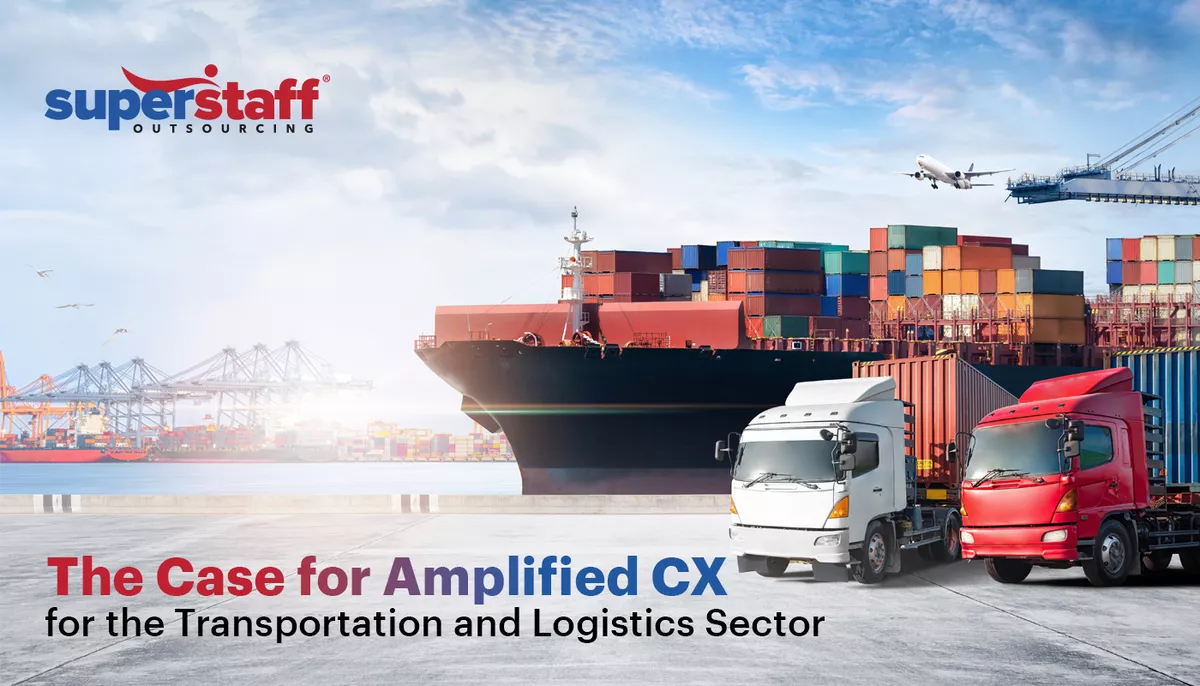
The rise of new technologies continues to reshape consumer behavior, urging businesses to reassess and reinvent their customer experience (CX) strategy.
Thankfully, CX in today’s digital age no longer requires leaders to rely on guesswork or gut instinct. With the accessibility of customer data, companies can identify patterns and trends to enhance existing CX and drive the vision and future of the entire business.
In that regard, customer experience has also become particularly critical for success in the logistics and transportation industry. Today’s buyers seek innovative solutions for improving safety, efficiency, and convenience in every brand interaction.
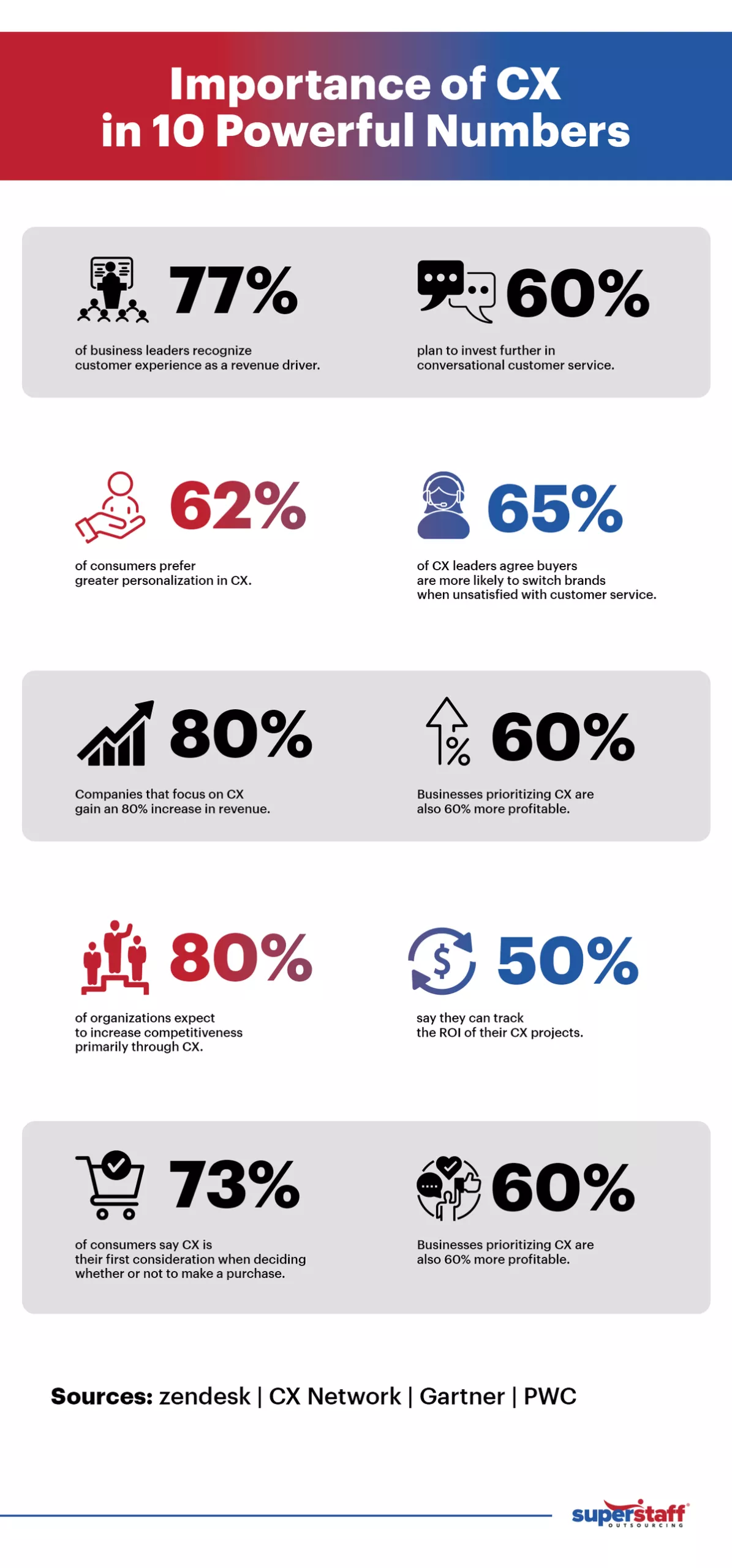
The numbers above illustrate how having a comprehensive CX strategy helps improve a brand’s reputation among consumers, fosters customer loyalty, and improves sales and revenue.
Now let’s dive deeper into the state of CX in the logistics and transportation industry.
Top 7 CX Trends Shaping the Logistics and Transportation Sector
Transportation and logistics are undergoing a significant transition period fueled by evolving consumer expectations. Companies hoping to thrive in these uncertain times must stay updated on the latest CX trends and leverage new technologies to improve their logistics processes.
Labor Shortages
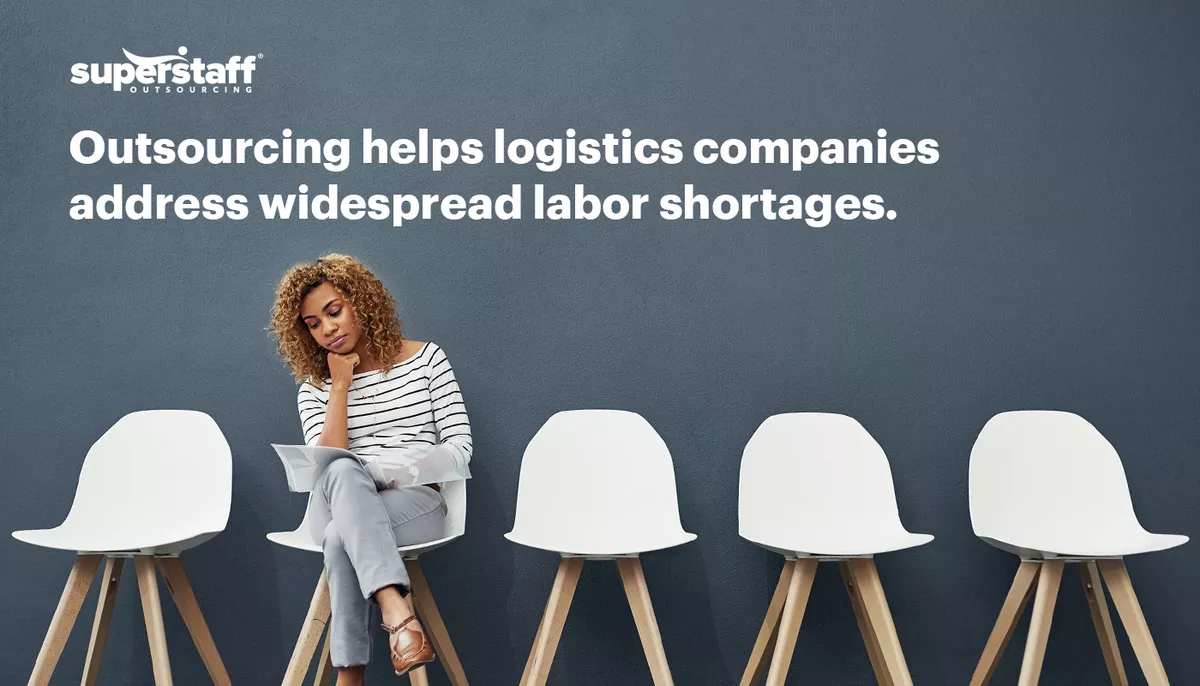
The logistics industry relies heavily on large, distributed workforces to handle every step of the supply chain process, from procurement to delivery. However, transport and logistics businesses have been finding it increasingly difficult to hire and retain quality talent post-COVID 19.
According to the U.S. Chamber of Commerce, labor force participation rates have decreased sharply compared to pre-pandemic years. In July 2022, there were 10 million open job positions but 3.4 million fewer workers than in 2020.
The widespread labor shortages have created significant challenges for the logistics sector, playing a role in ongoing supply chain disruptions and preventing many from accelerating CX and digital transformation initiatives. Thankfully, outsourcing has emerged as an exceptional strategic solution for addressing the talent crisis.
Real-Time Analytics and Tracking

Beyond addressing labor shortages to improve customer experience, transport and logistics companies must pay attention to technologies shaping the industry’s future. One such innovation is the emergence of real-time analytics and tracking devices.
With radio frequency identification (RFID) technology, transportation and logistics businesses can now easily track deliveries in real-time, allowing customers to check their order status and view the estimated delivery time.
Additionally, companies can use this tech to pinpoint potential problems or disruptions during transportation and immediately notify customers about any delays or cancellations.
Efficiency in Last-Mile Delivery
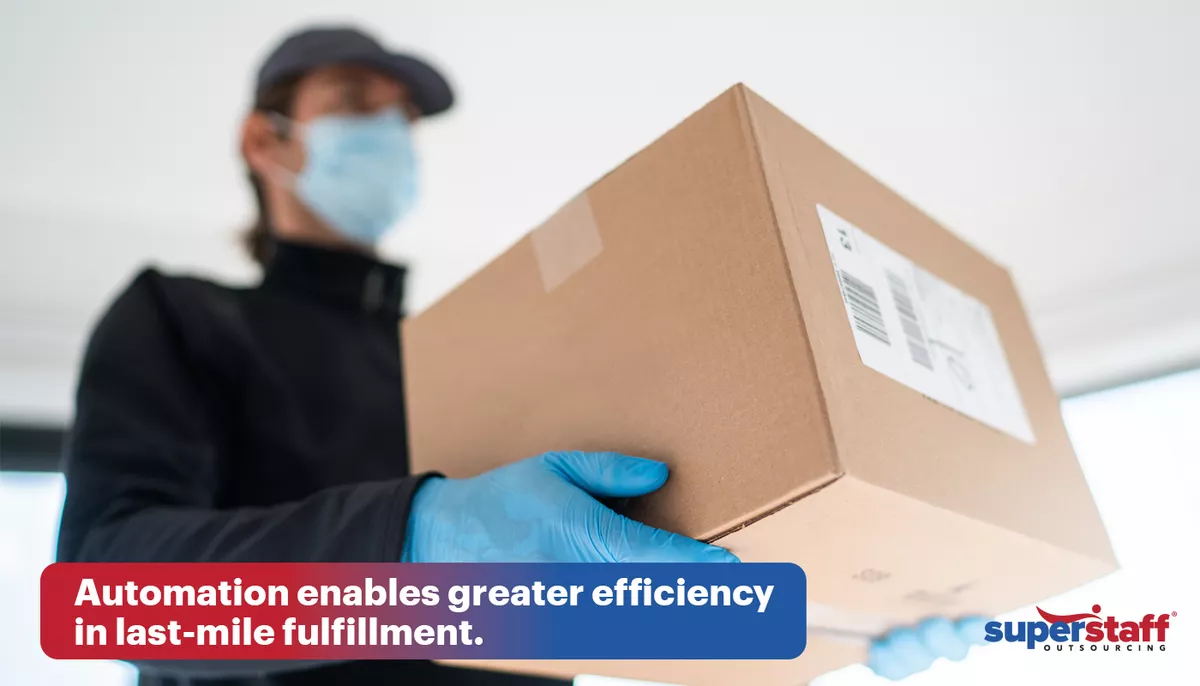
Last-mile delivery is one of the most challenging parts of a company’s logistics operations. It is also the most expensive step of the process, comprising 53% of the total cost of shipping.
As such, efficiency is crucial to not only ensure a top-notch customer experience but also reduce any more unnecessary costs during last-mile fulfillment. The good news is that many innovative solutions are now available to help logistics companies streamline their delivery processes.
For instance, some transport businesses see the potential use of automation to ease last-mile delivery woes, mainly investing in drones, delivery robots, and even self-driving vehicles.
Meanwhile, others have found success by working with reliable BPO providers. An outsourced back office team can handle dispatch services and other critical logistics tasks to reduce your core team’s workload and improve your operations’ overall efficiency.
Track and Trace for Superior Customer Experience

Poor supply chain visibility is one of the most significant challenges many logistics companies face. When left unaddressed, supply chain disruptions can negatively impact your bottom line and shatter your CX strategy.
According to a Forbes report, many businesses can reduce their shipping costs by 30% if they only avoid foreseeable, preventable problems – and this can be done by implementing track and trace logistics for real-time supply chain visibility.
Track and trace refers to using innovative technologies to increase transparency across every supply chain step, from material handling to order fulfillment.
These tech solutions are crucial for proper supply chain management, allowing businesses to follow their products’ movement, exact location, and delivery status. They enable companies to identify potential supply chain bottlenecks, resolve problems quickly, and ensure customers receive timely deliveries.
Demand for Same-Day Delivery for Couriers

Today’s consumers crave convenience and expect their chosen brands to provide delivery options that are quick and easy. To drive customer satisfaction, transportation and logistics companies prioritize same-day deliveries and invest in cutting-edge technologies for rapid order fulfillment.
Industry analysts have found that the global market for same-day deliveries has grown from $6.44 billion just last year to $7.93 billion in 2023. By 2027, experts estimate that the market will reach $15.8 billion, growing at a compound annual growth rate of 18.8%.
Seamless Communication Across Multiple Fleets
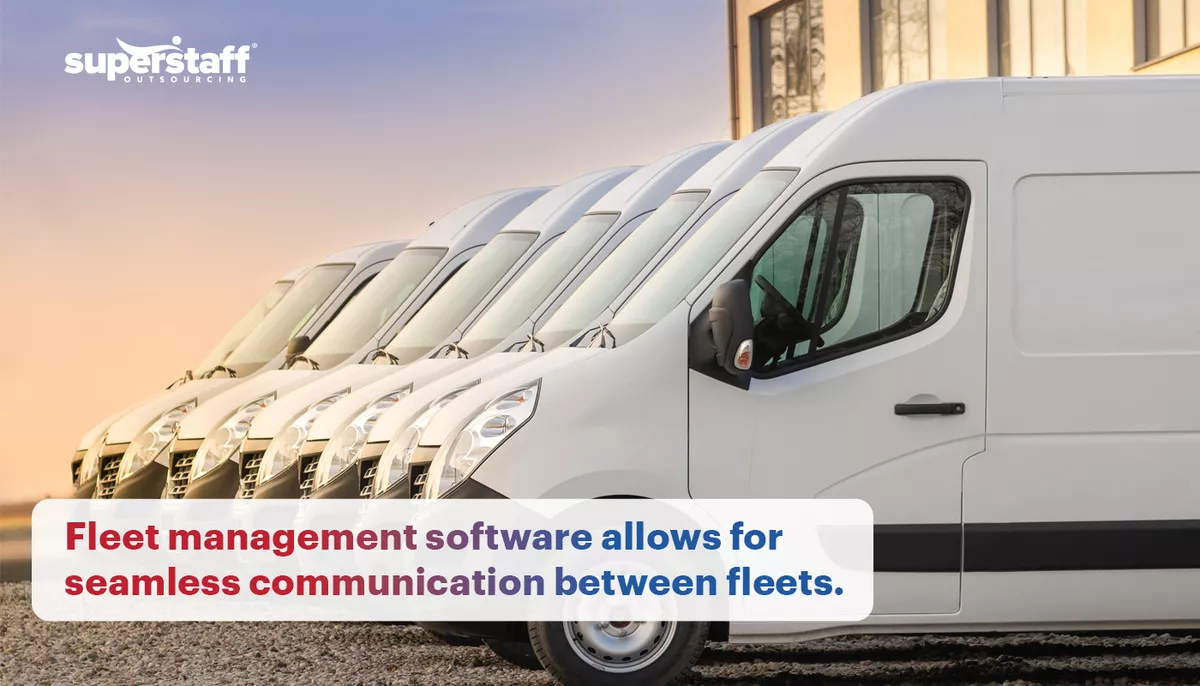
Transportation and logistics companies often handle multiple fleets spread across vast territories and distances, which can be challenging to oversee, even for the most experienced logistics managers. The key to proper fleet management is always maintaining real-time visibility and communication.
Many companies invest in fleet management software to help them track assets, monitor their fleets, and optimize delivery processes. Transportation businesses also depend on outsourced dispatchers to guide drivers as they make deliveries and maintain communication and transparency to streamline large fleet operations further.
Utilizing Unmanned Aerial Vehicles and Self-Driving Cars for Product Deliveries

For the past few years, drones and autonomous vehicles have generated buzz among consumers eager to use them for personal or leisure purposes. However, transportation and logistics businesses have also begun realizing the potential use of these technologies for speedy and convenient delivery.
Human drivers and delivery vehicles will still be needed for long-distance shipping and transportation. Still, self-driving cars and drones can reduce delivery wait times for shorter distances.
In addition to providing faster service, drones and self-driving vehicles integrated with artificial intelligence (AI) technologies can more effectively avoid obstacles, optimize delivery routes, and lower overall operating costs.
BPO Services That Can Support the CX Strategies of Transport and Logistics Businesses

Transportation and logistics companies must prioritize strategies that increase flexibility, agility, and resilience amid a constantly evolving business environment. At the same time, they must pay close attention to the ever-changing consumer demands and expectations to remain competitive.
The good news is that working with an experienced outsourcing provider can help you achieve these goals and more.
With the right BPO partner by your side, you can enhance your CX strategies by leveraging the specialized expertise of outsourced professionals. They can help you level up your existing customer service operations, drive all aspects of your business to maximum productivity, and even help you facilitate digital transformation.
Here are just a few of the essential BPO services for transportation and logistics companies:
Customer Service Outsourcing
The first step to improving your CX strategy is leveling up your customer service operations. Ensure your buyers can reach out to you about their concerns at all times and on whichever platform they choose by providing 24/7 omnichannel multilingual customer support.
Information Technology (IT) and Technical Support
Maintaining real-time visibility, transparency, and communication at all supply chain stages requires a solid tech infrastructure. As such, logistics companies hoping to improve CX must consider outsourcing tech jobs, such as IT and technical support solutions, to build and manage their tech systems, processes, and networks.
Back Office Support
Beyond customer service, optimizing CX also includes enhancing the productivity and efficiency of your back-office operations. By outsourcing non-core back office transport services, you can easily reduce your in-house staff’s workload and manage complex supply chains.
As outsourced professionals handle repetitive and time-consuming tasks, your team can focus on communicating with customers and making on-time deliveries.
Logistics and Dispatch Services
Navigating logistical challenges in the post-pandemic era can be tricky. Still, the right BPO partner can support your operations by handling various tasks, from processing invoices to entering information into your company database.
Accounting and Bookkeeping
Managing finances is vital for businesses of all industries but is particularly crucial for the transportation and logistics industry. For instance, logistics companies constantly deal with fluctuations in operational costs (due to ever-changing oil and gas prices or shipping rates), handle a large volume of financial transactions, and contend with various cross-border tax complexities.
To ensure that your business remains in good financial standing, investing in outsourced accounting and bookkeeping services can be valuable. Here are just a few of the financial services you can delegate to a third-party provider:
Knowledge Process Outsourcing
A comprehensive and innovative customer experience strategy involves leveraging new technologies and finding ways to incorporate them into your daily operations. To facilitate digital transformation in your transport and logistics business, you must work with outsourced professionals with specialized expertise in niche fields like artificial intelligence (AI) and machine learning (ML).
Optimize Your Transportation and Logistics Services With Help From SuperStaff
As consumer demand continues evolving, the logistics and transportation industry must evolve alongside it. Adopting new technologies and innovative solutions is crucial for creating a comprehensive CX strategy that engages customers across all touchpoints and provides them with the quality service they deserve.
At SuperStaff, we are passionate about helping transport and logistics businesses provide a world-class customer experience for their buyers. From omnichannel customer support to AI and machine learning solutions, we provide BPO services that support every aspect of your core operations and help you future-proof your processes in this era of constant disruption.
Contact us today, and let’s discuss how our flexible and scalable outsourcing solutions can help you take your customer experience to the next level!






